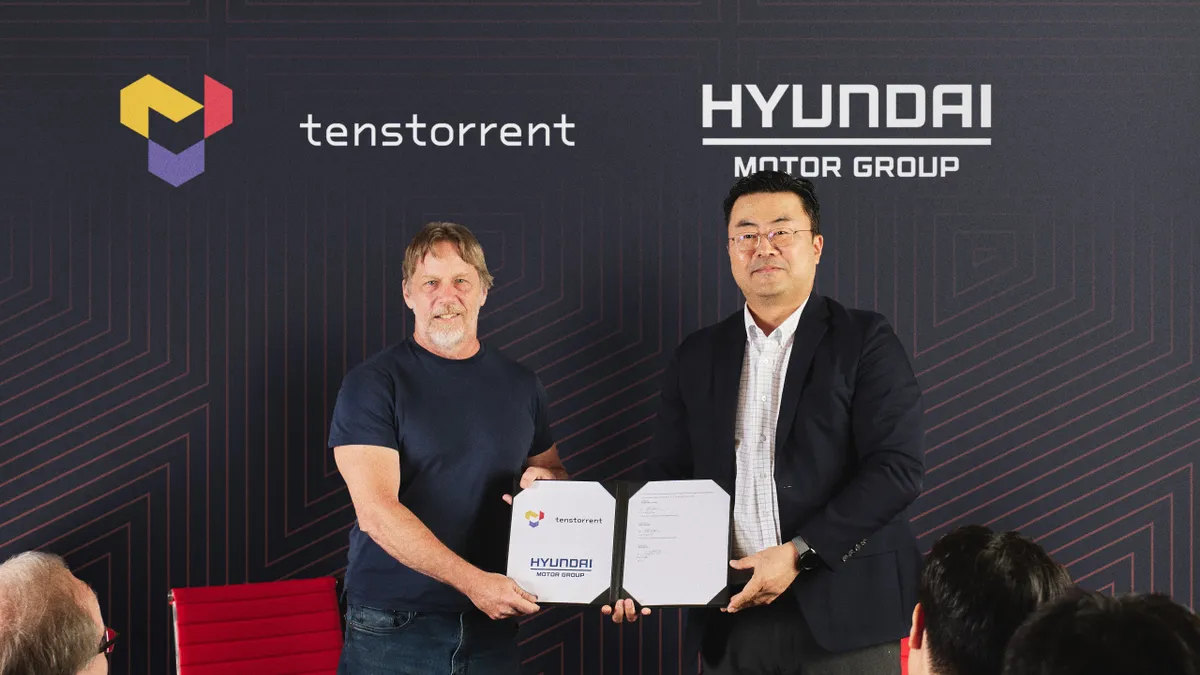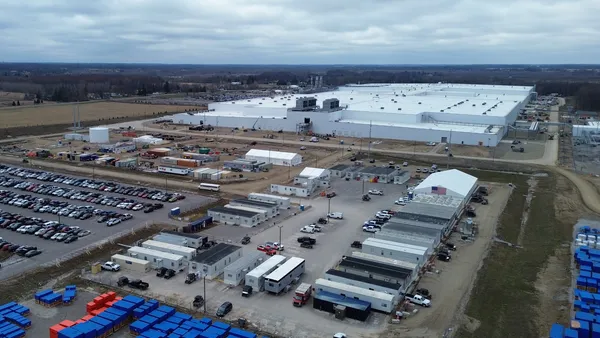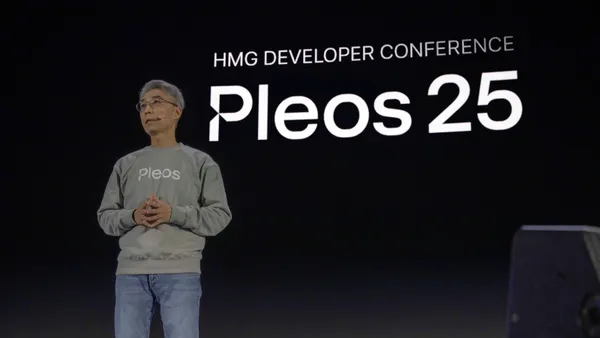Dive Brief:
- Hyundai and Kia are investing a combined $50 million in Toronto-based semiconductor startup Tenstorrent. It’s part of a $100 million funding round led by Hyundai Motor Group and the Samsung Catalyst Fund, according to a press release.
- Hyundai and Kia plan to use Tenstorrent’s high-performance IP to jointly develop optimized semiconductors for central processing units and neural processing units for future vehicles and other mobility applications.
- As automakers add advanced autonomous driving capabilities to their vehicles, they are spending significant money to meet the rising demand for semiconductors and more powerful processors.
Dive Insight:
The $30 million investment from Hyundai and $20 million from Kia, respectively, will be used to accelerate Tenstorrent’s development of high-performance chips that support artificial intelligence and other machine-learning workloads, such as software used to power advanced driver assistance systems and autonomous driving.
“With this investment, the Group expects to develop optimized but differentiated semiconductor technology that will aid future mobilities and strengthen internal capabilities in AI technology development,” said Heung-soo Kim, executive vice president and head of the global strategy at Hyundai Motor Group, in the press release.
Toronto-based Tenstorrent, which was founded in 2016, developed a computing platform that supports the demands of AI-powered processing. The company's products are optimized for neural network inference and machine learning training tasks.
To meet the growing demand for robust AI-powered hardware in the auto industry, Hyundai established its Semiconductor Development Group earlier this year. The unit focuses on customized semiconductor development through collaborations with external partners.
The launch of vehicles equipped with more advanced driver assistance systems and autonomous driving capabilities has led to growing automotive business opportunities for hardware developers like Tenstorrent, as well as other companies like Nvidia and Intel. Nvidia’s automotive design pipeline, for example, has increased to $14 billion through 2028, according to a recent blog post. Intel’s division Mobileye developed a family of system-on-chips to support complex and computationally intense computer-vision processing tasks that support autonomous driving.












